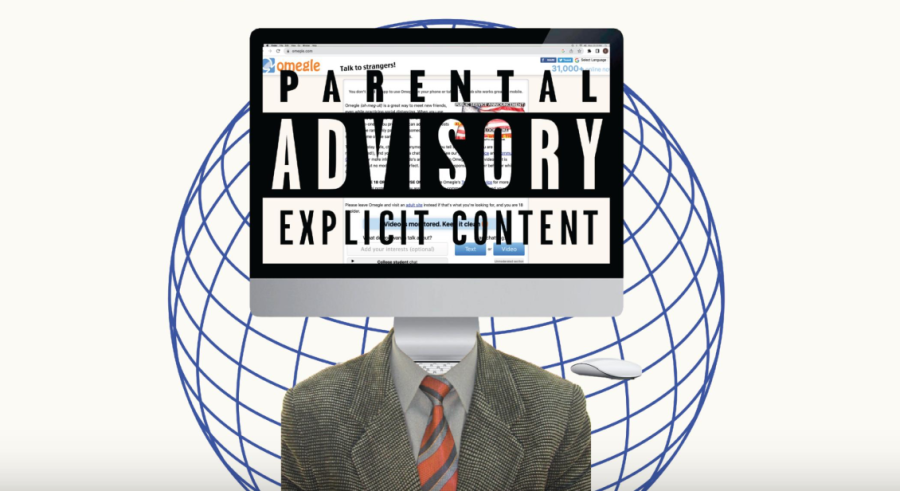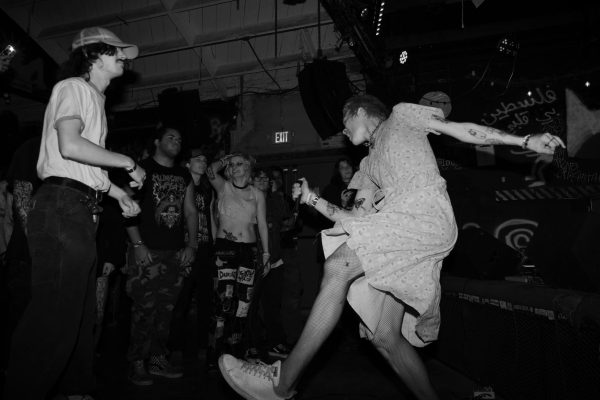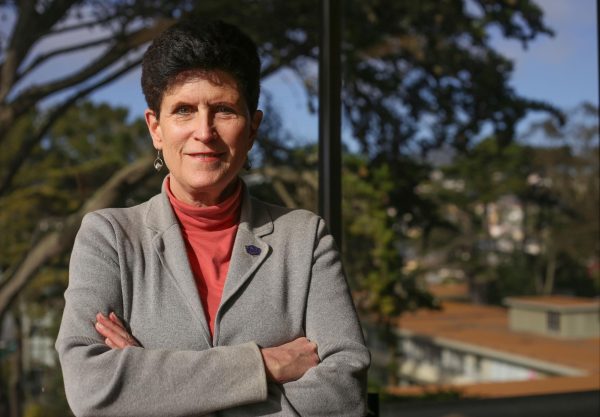Tangled in the Web
The lasting effects of unrestricted childhood internet exposure.
If you look closely at the hands of someone who spends a lot of time on their phone, you’ll notice a distinct characteristic: dented pinkies. Many people who spend hours at a time on their phones can run their fingers across the inside of their pinky and feel a slight indentation, and some can visibly notice the dent. Despite no scientific studies on the topic, it does raise an important question:
If being on your phone too much is affecting us physically, what is it doing to us mentally?
The internet can be a scary place. Without restrictions or parental supervision, children can access a multitude of harmful messages, images and ideas during pivotal times in their adolescence. Though today’s internet is more regulated, those who grew up using the internet in its unhealthy prime are discovering long-lasting negative effects.
A young woman from the Bay Area, Jane Doe, who opted to remain anonymous to maintain her privacy, was a preteen when the social media apps we recognize today were introduced. The experiences she had growing up on these apps left her with emotional scars that she feels uncomfortable with people knowing about, but she still wants to raise awareness and offer support to those who have experienced something similar.
Doe was 11 years old when she made her first social media account on Facebook. That was quickly followed by a Tumblr account when she was 12. By the time she was 16, she had amassed over 30,000 followers on Tumblr and had become “tied down” to the site.
“I felt like I belonged…like I was a part of something,” said Doe. “They gave me the sense that I wasn’t alone in how I was feeling, and that I had a community of friends and peers.”
This feeling of camaraderie and companionship is the internet at its absolute best — the notion that people from all backgrounds can come together and form circles of trust they might not otherwise have in their real, day-to-day lives. But at its worst, the internet can be a dangerous cesspool — full of harmful images and ideas, predators and deceit.
“On Tumblr, I found a lot of pro-ana and self-harm glorification, which really plummeted me into my depression and eating disorder when I was 13,” Doe said. “Those things stuck with me for years.”
Pro-ana is a term for an online movement that promotes anorexia. This side of the internet encourages users to incorporate anorexic practices into their lives and glorifies unhealthy thinness. While Doe does not solely blame the internet and Tumblr for her struggles with mental health, she believes they introduced her to topics she might not have never known about otherwise.
According to a report by The Wall Street Journal, 32% of teen girls said that when they felt bad about their bodies and Instagram made them feel worse.
SF State Alum Keani Lastra made her first Facebook profile during middle school in 2010. At the time, Facebook was used by kids to rate the appearance of their peers in exchange for likes and to post selfies multiple times a week — all in desperation for likes.
“I spent a very long time associating my self-worth with the amount of likes my photos would get, or with my numbers of friends and followers,” said Lastra. “And the even bigger problem here is that I was never satisfied. I always felt like I needed more likes, more comments, more views, more friends…”
This need for more engagement on social media is not unheard of and can be seen from all over the internet. In a study conducted by SF State’s Language, Attention, & Cognitive Engineering Lab, there was a negative correlation to technology usage and self-control. The more participants used technology, the lower the levels of self-control.
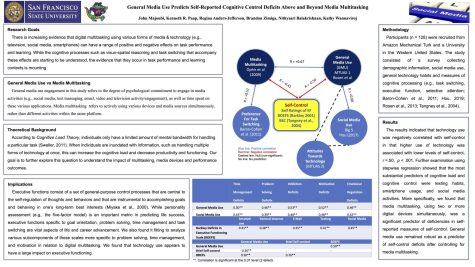
The study consisted of an extensive questionnaire asking about the self-control of its participants. Self-control is a broad term that covers factors like overall self-esteem, mental health and satisfaction of life. The more the participant used technology and media, the more negative the answers they had. The LACE Lab opened the study up to everyone, spanning across all countries, ages and genders. Researchers found the one question that was the biggest indicator of the negative correlation between media usage and self-control was, “Indicate the degree to which each statement applies to you – I feel distracted when I am waiting for responses to my social media posts.”
The need for engagement on social media posts can be detrimental to one’s focus, mental health and wellbeing. This is a notion that is seen across the globe and across all ages. But the study also found that women on average have a more negative relationship between media and self-control than men do.
Though negative impacts on mental health are concerning , a scarier part of the internet is predators. Hidden behind a computer screen, predators have access to people — often children — they might not normally get in real life.
When Jada Trail, a soon-to-be first-year student at SF State, was 11 or 12 years old, she was sexually harassed on a live stream.
“At the time, I knew I was uncomfortable with what was going on, and tried my hardest not to engage,” said Trail. “I wasn’t fully aware of the situation until a few years later, reflecting on the incident.”
Sexual harassment is nothing new for young girls using the internet, especially in the 2010s with the rise in apps such as Kik Messenger and Omegle.
Omegle is a free online chatting website that allows users to video chat and message random people in a one-on-one setting. This website doesn’t require registration, and people can stay completely anonymous. There is also nowhere to verify a participant’s age before they’re granted access to the website.
“I saw my first of many penises on Omegle when I was 12,” said Doe.
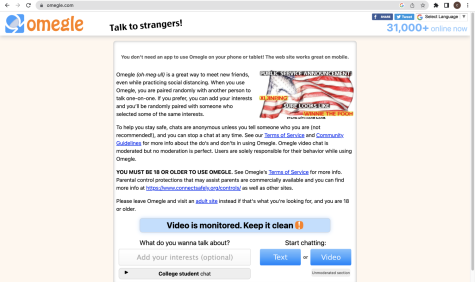
This is not an uncommon scenario for young women who grew up using Omegle. The company has dealt with a multimillion-dollar lawsuit, and an investigation by the UN’s Special Rapporteur found it enabled sexual harrassment and child pornography.
According to Pew Research, 33% of women under 35 said they had been sexually harrassed online. Being sexually harrassed, especially at a young age, can lead to numerous mental health issues such as anxiety, persistent fear, depression, dissociation, panic attacks, paranoia and more etc. the Washington Coalition of Sexual Assault Programs states.
The phenomenon of growing up online is something that is still relatively new to the world, but it’s already rearing its ugly head in kids and young adults today. With new applications such as screen time trackers and sleep timers, some progress has been made. But there is still a long way to go to create a more healthy relationship between the internet and its users.

Ciara O’Kelley is a current journalism major and Africana Studies minor at San Francisco State. This is their second semester working on Xpress Magazine...


